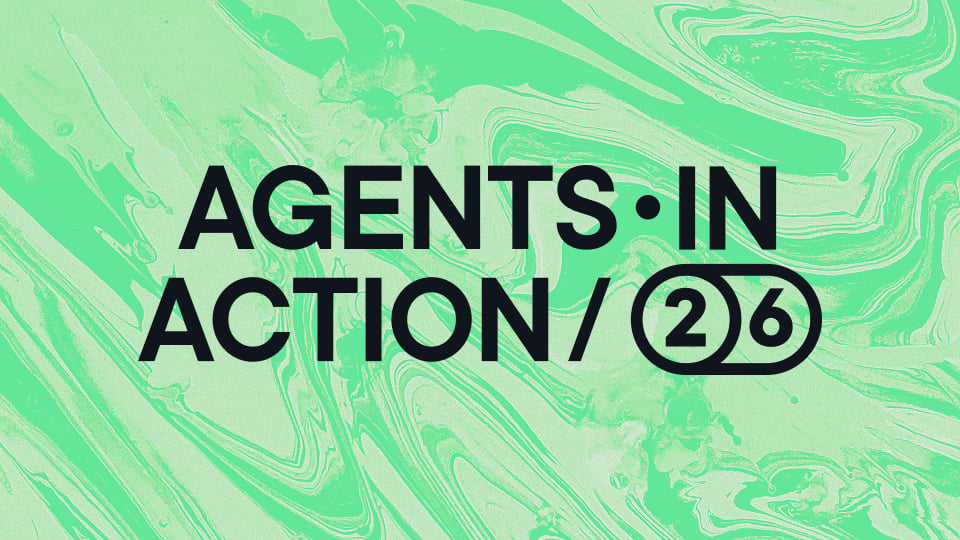Press
AI Discovery Has Rewritten the Rules of Online Shopping and Research – Most Brands Are Underprepared
62% of marketers recognize click-less journeys are here, but only 27% feel well-prepared for this new reality
NEW YORK, November 12, 2025 – In the age of AI discovery, visibility no longer means being seen—it means being surfaced by generative engines that decide what gets attention. As consumers increasingly rely on these platforms to summarize, recommend, and decide, brands that haven’t adapted their content risk disappearing from view.
New research from Optimizely, the leading digital experience platform, reveals just how wide the gap has grown between consumer behavior and brand readiness. The study, which surveyed more than 1,000 marketing leaders and 1,300 consumers across seven global markets, exposes a more than 30-point gap between urgency and execution with 62% of marketers believing click-less journeys will become the norm within the next year or are already happening, while only 27% feel well-prepared for this new reality.
“If you're not optimized for AI, you're invisible," said Tara Corey, SVP of Marketing at Optimizely. “Consumers are using AI platforms as the front door to the internet, making purchase decisions without ever reaching your website. And while marketers debate how much of a priority GEO should be, their brands are being summarized, compared, and potentially dismissed by algorithms. The brands that move fastest to understand and influence those moments will define the next era of digital marketing."
The Readiness Gap: Marketers Know AI is Coming, But Aren't Taking Action
-
Only 39% of marketers rank Generative Engine Optimization (GEO) as a top-three priority over the next 6-12 months, even as 67% of consumers now use AI tools like ChatGPT, Google AI Overviews, or Perplexity to research products or services. The shift is even more pronounced among younger shoppers—consumers aged 18–44 are three to four times more likely to use AI daily to research products than those over 55, signaling that the trend will continue in the coming decades.
-
75% of marketers have little to no confidence in how their brand appears in AI summaries, yet 4 in 10 consumers say they'd trust an AI-generated summary without visiting a brand's website. Plus, nearly one-third of consumers have already made a purchase based solely on an AI-generated response, and of those buyers, 87% were satisfied with what they purchased.
What Drives Trust: Brand Recognition Still Matters
-
Nearly one-third of consumers (31%) say they're more likely to trust an AI-generated product summary if it comes from a brand they already know, while another 31% value a mix of brand and product information, and 22% say clear and accurate product details alone drive trust.
-
The challenge for marketers is ensuring their brands are represented accurately and favorably in these AI-generated summaries, especially as consumers increasingly rely on them to make purchasing decisions. Only 25% of marketers are very confident that those summaries accurately reflect their brand or content.
The Talent Retention Threat: Marketers Won't Wait for Their Companies to Catch Up
-
Marketers' concerns about AI are fragmented, signaling no cohesive industry strategy. When asked about their top concerns with using AI in campaigns, responses were almost evenly scattered between legal and compliance risks (25%), reduced site traffic (20%), outdated or incorrect content (20%), loss of message control (19%), and difficulty measuring performance (18%).
-
Two-thirds of marketing leaders (66%) say they'd leave their company within a year if it doesn’t develop an AI or GEO strategy, with only 4% saying it wouldn't impact their decision to stay, proving that lack of action isn't just a strategy problem; it's a retention risk.
-
Only 45% of marketing teams have a defined AI strategy for GEO, proof that most companies are moving too slowly to meet both market shifts and employee demand.
Optimizely’s latest research reveals just how fast the AI-driven discovery era is accelerating, and how far brands still have to go. Learn more by reading the full report here: https://www.optimizely.com/click-less-customer-report/
Methodology
Optimizely commissioned independent research in October 2025 to explore how AI is reshaping both consumer behavior and marketing strategy. The study surveyed more than 1,300 consumers and 1,000 marketing leaders across seven global markets, examining how people use AI platforms to discover and evaluate brands—and how organizations are adapting to this new digital landscape.
About Optimizely
Optimizely is on a mission to make the lives of marketers better with Optimizely One, the world’s first operating system for marketing teams. Optimizely One combines industry-leading solutions across content management, content marketing, experimentation, commerce and personalization, powering every stage of the marketing lifecycle through a single, AI-accelerated workflow. With the flexibility of a fully composable platform, Optimizely is proudly helping global brands like Salesforce, Zoom and Toyota create content with speed, launch experiments with confidence, and deliver experiences of the highest quality. Learn more at optimizely.com.
Optimizely, Optimizely One, and NetSpring are the trademarks of Optimizely North America Inc., and are registered (or registrations are pending) in the US, EU, UK and other countries. All third-party trademarks cited are the property of their respective owners and are used only for reference purposes.
Media Contacts
Rachel Teitt Gill
Vice President, Global Communications & Events, Optimizely
+1 202-630-8859
Rachel.TeittGill@optimizely.com
Victoria Johnson
Sr. Manager, Global Communications, Optimizely
Victoria.Johnson@optimizely.com

